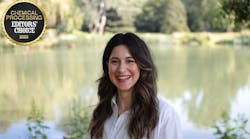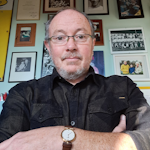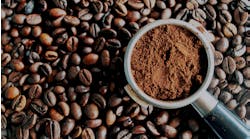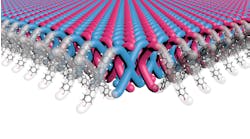Meet Dr. Kousi, the Hands-On Engineer with a Passion for Inclusion
CP editors picked this story as one the top articles for 2023. To view all of our Editors' Choice picks for the year, visit https://chemicalprocessing.com/33016377.
In June, Dr. Kelly Kousi, a lecturer in the School of Chemistry and Chemical Engineering at the University of Surrey, Guildford, U.K., was named a finalist in the Top 50 Women in Engineering Awards (WE50) 2023: Safety and Security.
The annual event, run by the U.K. Women’s Engineering Society (WES), Stevenage, celebrates nominees who demonstrate they have both created or improved a product or process and acted as an advocate for other women in science, technology, engineering and mathematics (STEM).
Today, Kousi leads a research group focused on materials for sustainable catalytic applications. However, her route to Surrey has been circuitous; along the way, her passion for STEM issues grew.
Path to GWIS
A native of Agrinio in Greece, Kousi’s first degree was in chemistry.
“While I love chemistry, I’ve always been a very hands-on person and wanted to do something more applied. That’s why I did my Ph.D. on catalytic systems for biomass reforming in the chemical engineering department at the University of Patras,” she shares.
Plagued by technical problems with the equipment she was using, one day, she explained to a lab technician how she thought it should be working.
“You do have the most man-like brain,” replied the lab technician.
“He said this with the best possible intention, but I think it pinpoints the essence of what this is about,” Kousi notes.
The comment was one of the drivers behind Kousi getting involved with the Greek Women in STEM (GWIS) organization shortly after its formation in 2020.
“I’m really, really driven by curiosity — to understand why things work the way they do."
GWIS focuses on science communication, interviewing Greek women in STEM roles, and providing free mentoring.
“I love the science communication aspect because I do think science is for the people. If they don’t understand what I’m doing, there’s no point in me chasing around electrons. This is one of my passions, and it makes it easy for young people to be inspired before they are influenced by society,” Kousi explains.
The interviews, published on the GWIS website, are designed to broaden the appeal of STEM-related subjects.
Mentoring for All
For Kousi, one of the most important GWIS activities is its mentoring program. The organization has mentors worldwide, where both men and women can join and receive mentoring.
A mentor is typically paired with a mentee for a month, scheduling meetings to discuss specific topics.
“The mentees get to choose who they want to speak to. We have biographies of mentors from different STEM backgrounds on the website. We find that this is very, very important because young people are afraid to ask questions,” Kousi says.
GWIS has potential mentors and mentees lining up in record numbers, she adds.
“This sense of community is the important part for me. It’s for everyone, and as such, everyone understands the importance of this. So, it’s not just women battling ahead on their own.”
GWIS’s continued evolution is mirrored by Kousi’s career. “I’m really, really driven by curiosity — to understand why things work the way they do, so after a year in industry after my Ph.D., I opted to do a postdoc at Newcastle University in the U.K.”
There, she spent four years working on materials for catalysis and chemical looping.
In Newcastle, she was usually the only woman in a 20-strong post-grad research group — far removed from the 4:1 ratio of men to women in her undergraduate chemistry course in Patras.
Even so, she still advocated for STEM subjects working with local schools in the U.K.’s Northeast on science videos and other projects.
Inclusive Goals
Her move to Surrey two years ago has allowed Kousi to continue combining her passions for chemistry and chemical engineering and lead a group where women are strongly represented. “My field is materials engineering. It’s my favorite thing because I get to do both. There’s more fun at the interface.”
It’s also allowed her to get involved with initiatives such as the WES-Surrey University working group, which aims to improve the experiences of women academics in the university. Various undergraduate societies run a number of other WES and STEM-related initiatives.
“There are so many groups trying to make a difference here. In Greece, GWIS is one of very few organizations doing this, so people know they can come to us and that we can help them if they need inspiration or to meet other people. In the U.K., it’s a bit more broken down. Maybe it’s better this way. I don’t know. We’ll see.”
Either way, Kousi is determined that the knowledge and experience gained in the U.K. will be used to improve opportunities for women there, in Greece and beyond.
“Inclusion means everyone, so I’m trying to see what the best way is for me to help people. I hope the WES recognition gives me more opportunities to do this,” she concludes.



